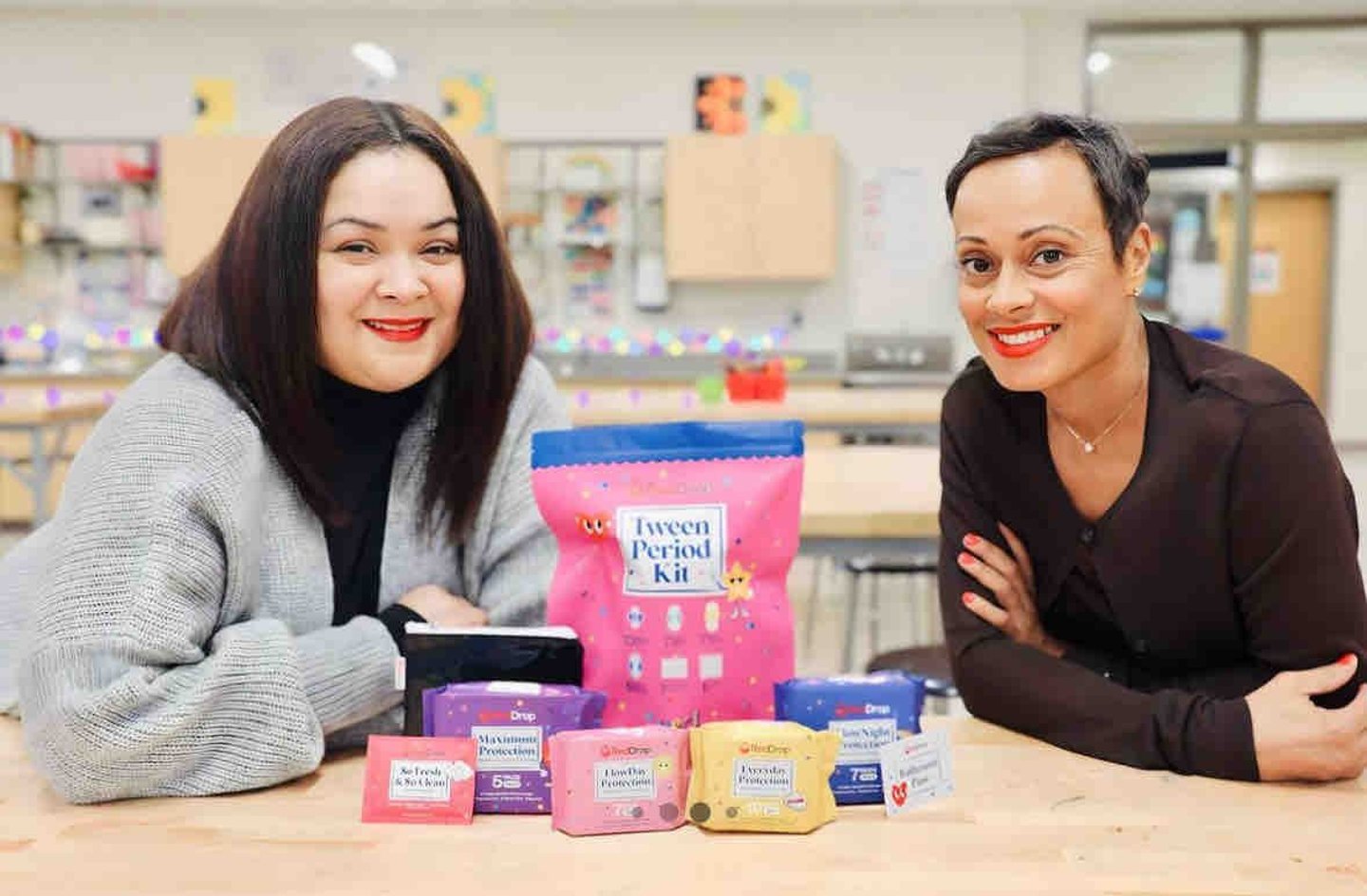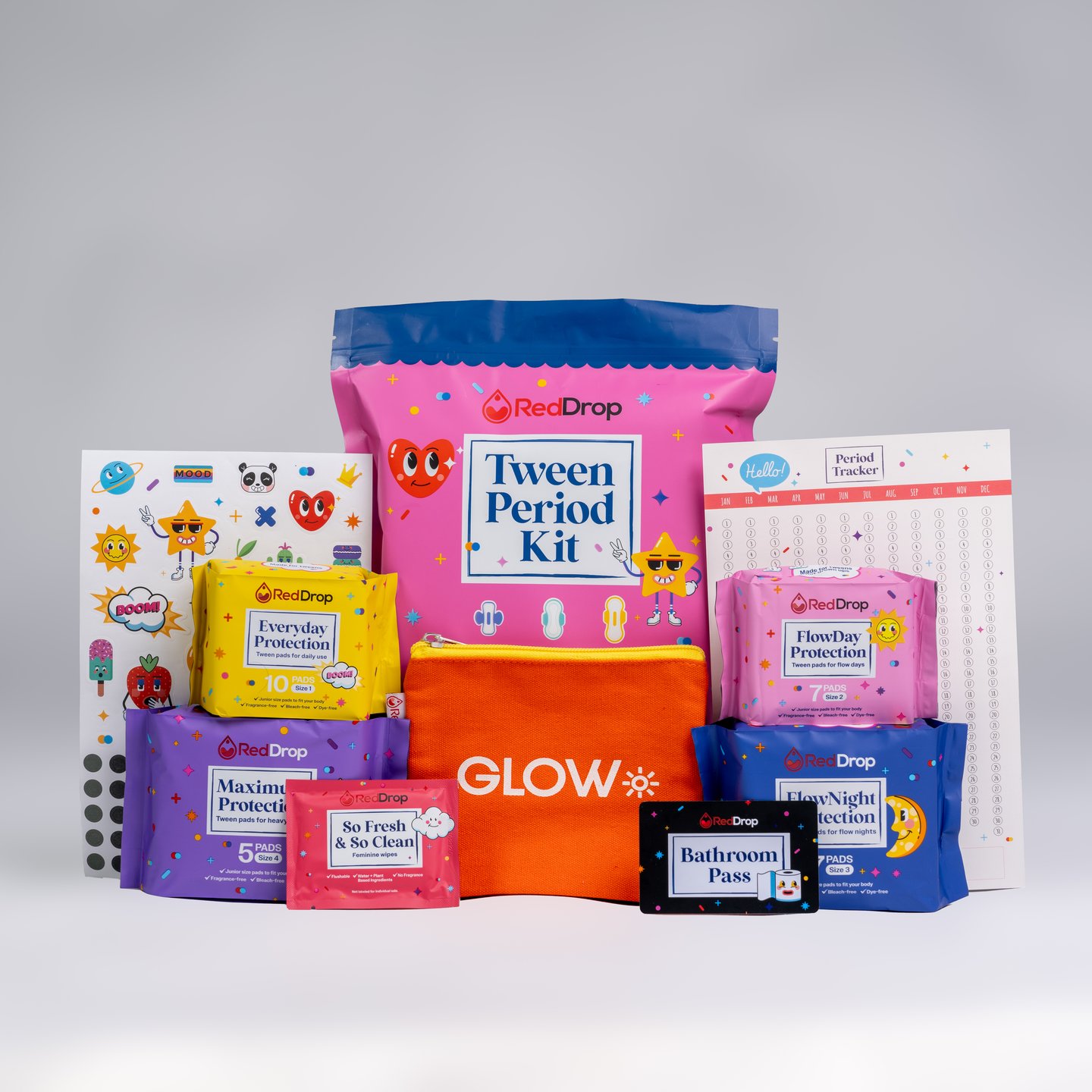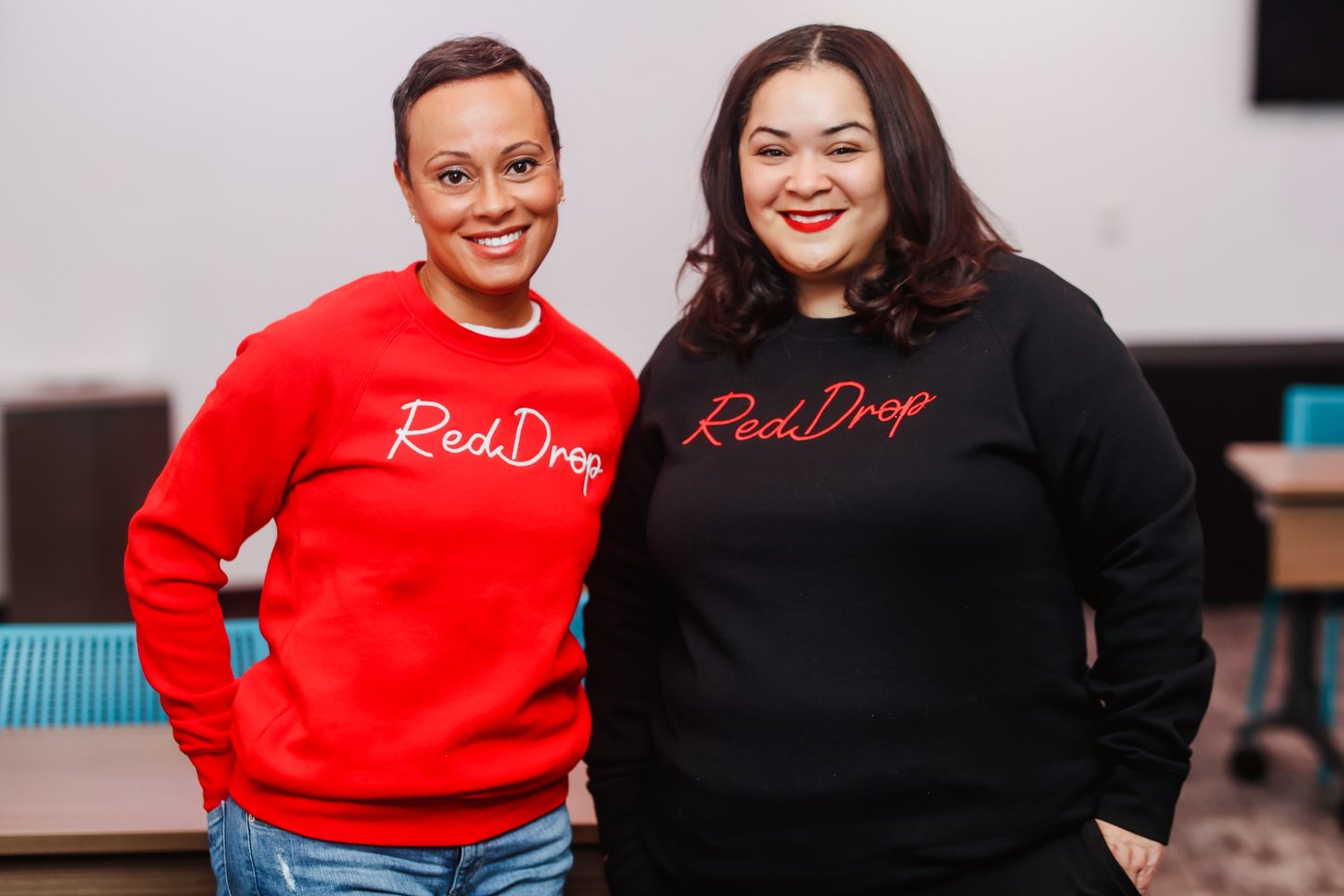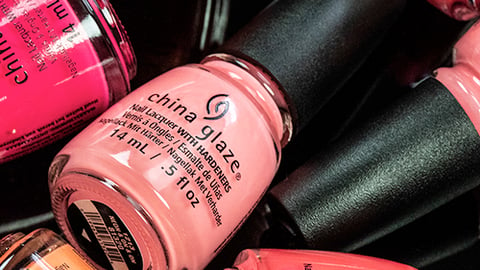RedDrop is on a mission to normalize and desexualize puberty
When Dana Roberts, co-founder and CIO of RedDrop, was teaching fifth grade, she had a female student who got her first period at school and didn’t know what was happening. “She asked me, ‘Miss Roberts, am I dying?’” That experience started Roberts’ journey to co-create RedDrop, a company dedicated to providing pads and complementary period products for tweens.
At the time, Roberts created a “first purse” for her students which included pads, underwear, disposable bags, and wipes. “I filled it with everything I could buy in the store. It was a good solution, everyone had one and they were prepared, but the products weren’t made for them. The girls complained that the pads felt like they were wearing a diaper.”
That’s when Roberts reached out to her God-sister and entrepreneur, Monica Williams, co-founder and CEO of RedDrop. “I didn’t know how to address this on a larger scale,” Roberts said. But Williams had just launched her first business, so timing wasn’t ideal. Fast forward 10 years to when Williams’ own daughter was on the cusp of puberty and she brought it back up to Roberts to see if she was still interested in pursuing the idea.
[Related: Black Opal has stood the test of time]
Williams said, “My background is in supply chain fulfillment and distribution, so when we started talking about it, I just started getting samples of pads to test. We thought about all the details — should the pads have an organic top, what shape should it be, should it have wings—there’s a lot of different details to think through and we were really intentional about it. Sixty-seven percent of girls will start their period during the school year. We wanted to create something that served them, meaning, if they’re sitting in a math class, they don’t have to concentrate on what the pad feels like in their pants.” Williams also shared that a lot of schools only allow two bathroom breaks, and depending on the school and environment, it can be incredibly strict. “We knew we needed to have extremely good holding power.”
In addition to considering the real world situations girls may face trying to manage their period during school hours, Roberts and Williams also thought about the average age a girl starts getting a period, typical height and weight, and underwear shape among other details.
“As a lifelong educator, from day one, I was really adamant that there would be an educational component to this, and I would say it’s even more important today than it was six or seven years ago,” Roberts said. “So that has been a real core function of RedDrop — packaging and tools for understanding what puberty is and desexualizing and normalizing it.”
The company’s initial product was a curated kit of all the things they felt a girl would need for her first period. Today they have four different sizes of pads for all four different types of flows, feminine hygiene wipes, a bathroom pass — that “is really unique to RedDrop, it’s like a credit card pass that has some terms and conditions” that can be given to a teacher or counselor so girls “don’t have to open the conversation when they need to go to the bathroom.”
[Related: What is self-care?]
The kit also includes a period tracker with stickers and a pouch to hold it all. “The tracker is a card with a 12-month calendar so they can track their period with cute little stickers,” Roberts shared. “It’s really important because girls’ periods are usually very inconsistent the first few years so tracking it helps them be better prepared. It also goes back to education. Learning what is normal for themselves and having the autonomy and authority to say so when there is something different than their normal body functions is what we really want to instill in girls. As they grow into women, having that authority to speak up for themselves, it impacts everything. They need to develop a voice of advocacy for themselves.”
A small amount of education can be found on the flip side of the period tracker, but the bulk of RedDrop’s free education is on YouTube and Instagram. They also offer an eight-part series for sale that goes through all the parts of puberty and how to use different products. They partnered with Rebel Girls to create their version of the book, Care and Keeping of You, and there’s an accompanying workbook that is designed for a caregiver and child to go through together to foster discussion about the process of puberty and all of the changes the body goes through.
RedDrop has worked with schools directly for three years and will soon be available at a national retailer. They were cohorts of the Ulta Beauty MUSE Accelerator in 2024. “To me it was the best partnership,” said Roberts. “If we’re really teaching girls the right things, beauty starts within, your health and wellness starts within. So, it was really important to us to have a non-traditional route to retail to say to girls that it’s another way to care for your body. I’m so excited that they took this chance on us and that we get to serve girls in a way that really normalizes it.”
Williams says the company is unique in providing a complete kit in combination with education and their vision is to own the period care space for school-aged girls, including elementary, middle, and high school.
[Related: Follett strives to meet Gen Z needs]
In November of 2024, RedDrop was awarded the $1 million grand prize from Black Ambition, Pharrell Williams’ non-profit organization that funds and fuels underrepresented Black and Hispanic entrepreneurs and trailblazing founders. Additionally, in February, the company was awarded the 2025 Achievement Award grand prize from the Fifteen Percent Pledge, a racial equity and economic justice nonprofit advocacy organization urging major retailers and corporations to commit 15% of their purchasing power to Black-owned businesses.
The company utilizes social media marketing to raise awareness as well as Google and Amazon marketing campaigns. Email is the primary way they keep customers engaged. “We talk about so many different aspects of growing up because tweens go through a lot, parents go through a lot dealing with tweens, and we want to be a thought leader in that space,” Williams explained. She said RedDrop participates in a lot of face-to-face events for schools and girl groups, such as Girls Inc. and Girls Evolve. “There’s unfortunately a stigma against health education in schools, that it’s sexual education, so it depends on the state if it’s offered. I just want to underscore that we are really proud to sell products that fit tweens, but honestly the way we’re doing the most work and the most change in this community, in this world, is just normalizing talking about, and desexualizing periods and puberty.”
Roberts says the company gets hundreds of requests for product donations so they have to be intentional in those that they fulfill. “I really wish our mindset would change. There doesn’t need to be feminine hygiene product drives for schools because there is enough money in a budget. If we believe this is an essential item, which it is, money should be set aside to ensure that girls have these essential items available. In school districts there should be no conversation about donated products because it’s as simple as setting aside the appropriate amount of funds.”
“That being said, we donate to various organizations and just donated thousands of products to three organizations in Los Angeles: Altadena Girls, Santa Anita YMCA, and One Voice LA. Those organizations support girls. When you talk about period poverty, a lot of girls get their products from school, so if their schools are burned down, if they are displaced, they don’t know where they’re going to school, or are participating in a virtual option — we just wanted to do our part.
Megan Moyer is a 20-year retail industry veteran and HRG’s corporate marketing manager. HRG is in the details of retail, working with product manufacturers, distributors, retailers, technology partners, and other industry organizations to provide data & analysis, shopper experience, brand development, fixture coordination, and retail communications solutions. HRG reviews new health, beauty, and wellness (HBW) items every month and assesses their potential for longevity in the monthly Products to Watch feature in Drug Store News as well as the annual Future 50 list.





